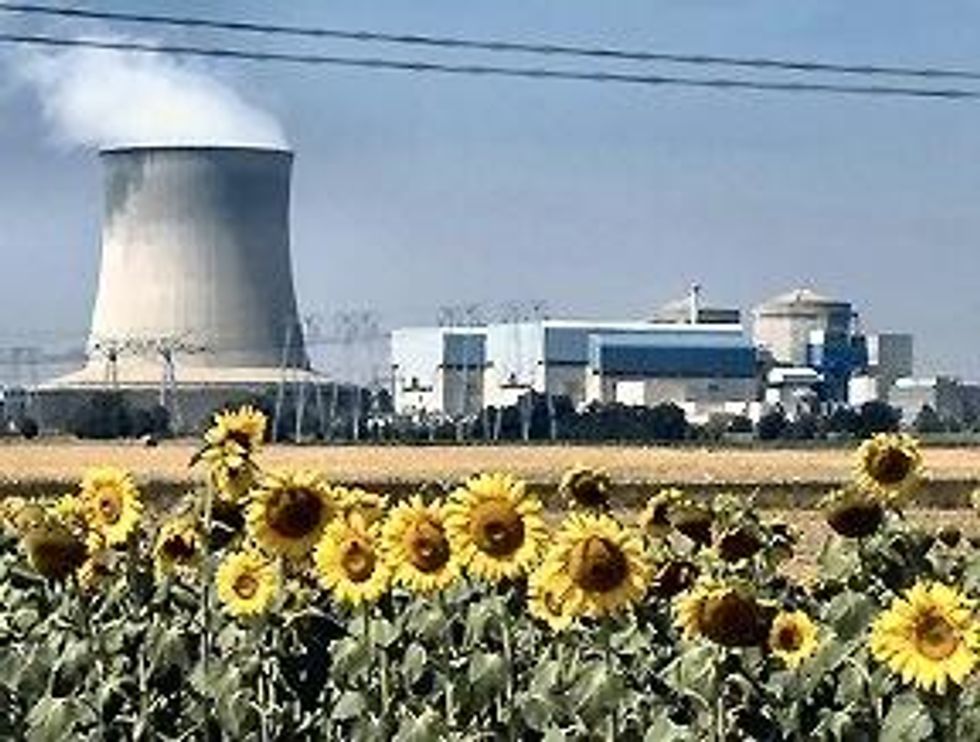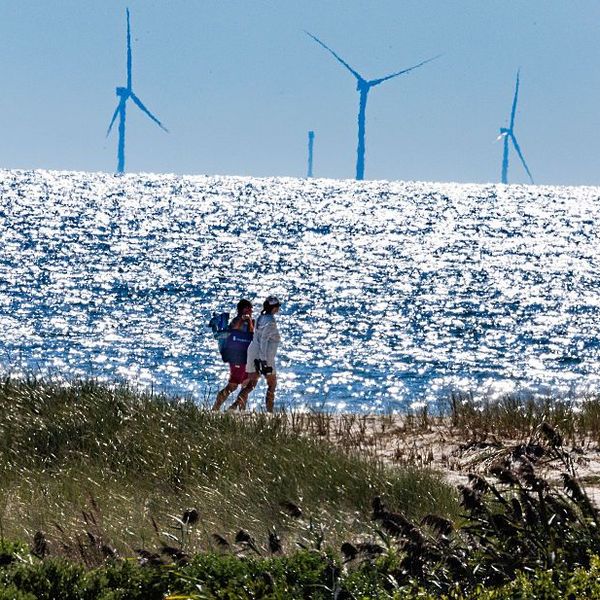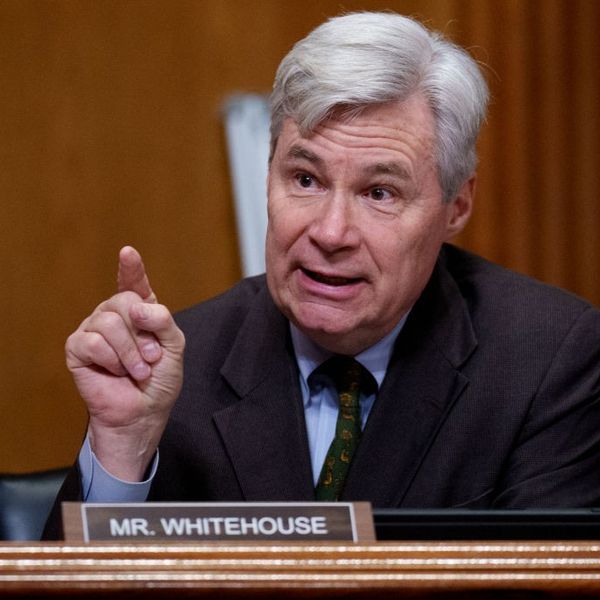Victory for Anti-Nuclear Power Movement in the US
Score two for the movement against nuclear power in this country.
In June, the federal appeals court for the District of Columbia ruled that the Nuclear Regulatory Commission was in violation of the law for failing to adequately assess the environmental hazards involved in the storage of nuclear waste, a point that anti-nuke activists have been making for years and years.
Score two for the movement against nuclear power in this country.

In June, the federal appeals court for the District of Columbia ruled that the Nuclear Regulatory Commission was in violation of the law for failing to adequately assess the environmental hazards involved in the storage of nuclear waste, a point that anti-nuke activists have been making for years and years.
In response to that court ruling, the NRC this week issued a statement that it was stopping the issuing of permits for new nuclear power construction, as well as for life extensions on old existing plants, until it satisfies the court's concerns.
The NRC's decision puts the breaks on new construction permits for 16 reactors, and renewal permits for 14 more.
That's a welcome move.
Still, it's not a permanent solution because the NRC is likely to go back to the court sometime in the not too distant future to try to convince the judges that its waste storage plans are somehow adequate.
Good luck with that!
Because the truth of the matter is that there is no safe way to store nuclear waste, either in the short term or in the long term--and by the long term, I mean the really long term: It takes 100,000 years before this stuff stops being hazardous.
Here's hoping that federal judges keep seeing the folly and falsity in all of this.
Meantime, let's celebrate a victory for the anti-nuke movement.
An Urgent Message From Our Co-Founder
Dear Common Dreams reader, The U.S. is on a fast track to authoritarianism like nothing I've ever seen. Meanwhile, corporate news outlets are utterly capitulating to Trump, twisting their coverage to avoid drawing his ire while lining up to stuff cash in his pockets. That's why I believe that Common Dreams is doing the best and most consequential reporting that we've ever done. Our small but mighty team is a progressive reporting powerhouse, covering the news every day that the corporate media never will. Our mission has always been simple: To inform. To inspire. And to ignite change for the common good. Now here's the key piece that I want all our readers to understand: None of this would be possible without your financial support. That's not just some fundraising cliche. It's the absolute and literal truth. We don't accept corporate advertising and never will. We don't have a paywall because we don't think people should be blocked from critical news based on their ability to pay. Everything we do is funded by the donations of readers like you. Will you donate now to help power the nonprofit, independent reporting of Common Dreams? Thank you for being a vital member of our community. Together, we can keep independent journalism alive when it’s needed most. - Craig Brown, Co-founder |
Score two for the movement against nuclear power in this country.

In June, the federal appeals court for the District of Columbia ruled that the Nuclear Regulatory Commission was in violation of the law for failing to adequately assess the environmental hazards involved in the storage of nuclear waste, a point that anti-nuke activists have been making for years and years.
In response to that court ruling, the NRC this week issued a statement that it was stopping the issuing of permits for new nuclear power construction, as well as for life extensions on old existing plants, until it satisfies the court's concerns.
The NRC's decision puts the breaks on new construction permits for 16 reactors, and renewal permits for 14 more.
That's a welcome move.
Still, it's not a permanent solution because the NRC is likely to go back to the court sometime in the not too distant future to try to convince the judges that its waste storage plans are somehow adequate.
Good luck with that!
Because the truth of the matter is that there is no safe way to store nuclear waste, either in the short term or in the long term--and by the long term, I mean the really long term: It takes 100,000 years before this stuff stops being hazardous.
Here's hoping that federal judges keep seeing the folly and falsity in all of this.
Meantime, let's celebrate a victory for the anti-nuke movement.
Score two for the movement against nuclear power in this country.

In June, the federal appeals court for the District of Columbia ruled that the Nuclear Regulatory Commission was in violation of the law for failing to adequately assess the environmental hazards involved in the storage of nuclear waste, a point that anti-nuke activists have been making for years and years.
In response to that court ruling, the NRC this week issued a statement that it was stopping the issuing of permits for new nuclear power construction, as well as for life extensions on old existing plants, until it satisfies the court's concerns.
The NRC's decision puts the breaks on new construction permits for 16 reactors, and renewal permits for 14 more.
That's a welcome move.
Still, it's not a permanent solution because the NRC is likely to go back to the court sometime in the not too distant future to try to convince the judges that its waste storage plans are somehow adequate.
Good luck with that!
Because the truth of the matter is that there is no safe way to store nuclear waste, either in the short term or in the long term--and by the long term, I mean the really long term: It takes 100,000 years before this stuff stops being hazardous.
Here's hoping that federal judges keep seeing the folly and falsity in all of this.
Meantime, let's celebrate a victory for the anti-nuke movement.

